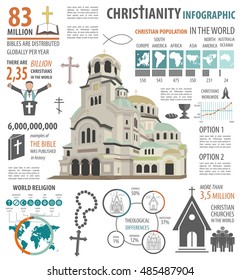Check Out The Fascinating Advancement Of Catholic Institutions And Their Considerable Effect On Education-- Might Their Customs Be The Answer To Future Learning?
Check Out The Fascinating Advancement Of Catholic Institutions And Their Considerable Effect On Education-- Might Their Customs Be The Answer To Future Learning?
Blog Article
Uploaded By-Petersson Galloway
When you consider the history of education and learning, Catholic institutions attract attention for their ingrained practices and long lasting impact. These institutions started as a way to instill confidence and values, but they've adapted remarkably over centuries. Today, they play a critical duty in shaping not just scholastic success but additionally moral integrity. What's interesting is just how they have actually handled to grow in the middle of altering social landscapes, questioning regarding their future importance and impact.
The Beginnings of Catholic Education: A Historic Perspective
Catholic education and learning traces its origins back over 1,500 years, when very early Christian areas acknowledged the requirement for structured understanding. You'll locate that these areas intended to pass on their faith and values through education.
Top Prep schools Traverse City and sanctuary institutions became facilities of understanding, nurturing both spiritual and intellectual growth. As https://click4r.com/posts/g/21230605/supporting-the-whole-child-confidence-intelligence-and-heart-in-cat dive much deeper, you'll see that the educational program frequently consisted of viewpoint, theology, and the liberal arts, designed to develop well-rounded individuals.
Gradually, the Church developed extra formal organizations, guaranteeing that education and learning remained available to all. The commitment to mentor moral worths and promoting a sense of neighborhood has actually lingered with the centuries, forming the educational landscape and affecting plenty of lives worldwide.
This enduring tradition continues to inspire Catholic education today.
The Advancement of Catholic Colleges With Social Contexts
As societies progressed, so did the function of Catholic colleges, adapting to the cultural contexts in which they existed. In the early years, these establishments focused largely on religious guideline, however as areas expanded, they started to integrate neighborhood languages, personalizeds, and instructional needs.
You would certainly notice that Catholic schools typically became centers for social cohesion, fostering a feeling of belonging among pupils from numerous histories. In numerous areas, they resolved social concerns, such as poverty and discrimination, by offering available education and learning for all.
As you check out various societies, you'll see just how Catholic schools have changed their curricula and teaching methods, reflecting the worths and difficulties of their settings while remaining true to their fundamental mission of faith and academic excellence.
The Modern Role and Effect of Catholic Schools in Culture
In today's world, Catholic schools play a vital function in shaping not simply the academic landscape, yet likewise the broader neighborhood.
You'll discover that these institutions emphasize values like respect, compassion, and social justice, promoting all-around individuals who add favorably to culture. By focusing on scholastic excellence and moral development, Catholic institutions prepare students for future obstacles, supporting critical thinking and management skills.
They frequently serve varied populations, bridging spaces in access to quality education. Furthermore, check it out might observe their dedication to solution, urging students to engage in area outreach and volunteer job.
This blend of education and learning and ethical support makes Catholic colleges a considerable pressure, cultivating liable people who can influence their neighborhoods for the better.
Final thought
Finally, Catholic institutions have an abundant history that's formed their enduring influence on culture. You've seen just how they have actually adapted to different cultural contexts while preserving a commitment to faith, values, and scholastic excellence. Today, they continue to play an important function in cultivating neighborhood, advertising social justice, and nurturing accountable citizens. As you review their legacy, it's clear that Catholic institutions remain an effective pressure for favorable adjustment on the planet.
